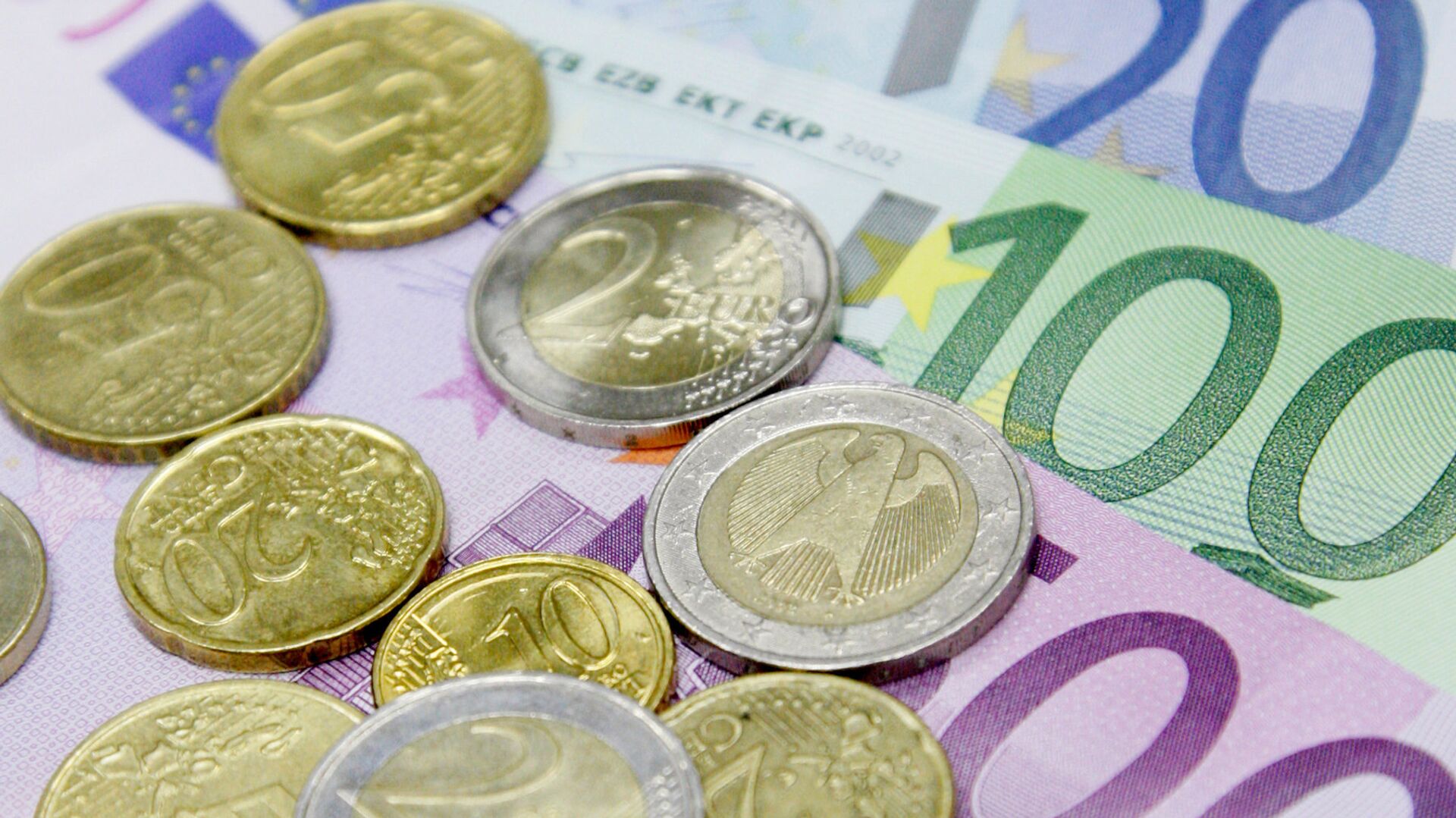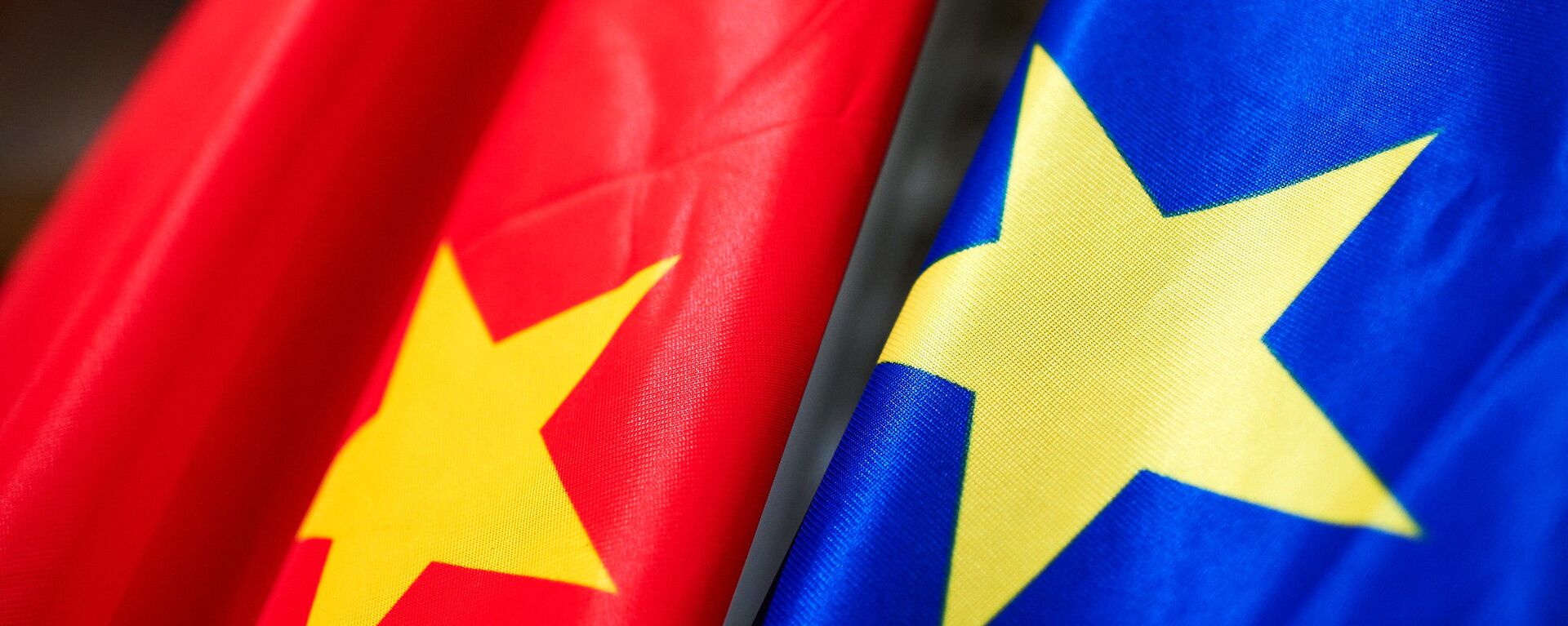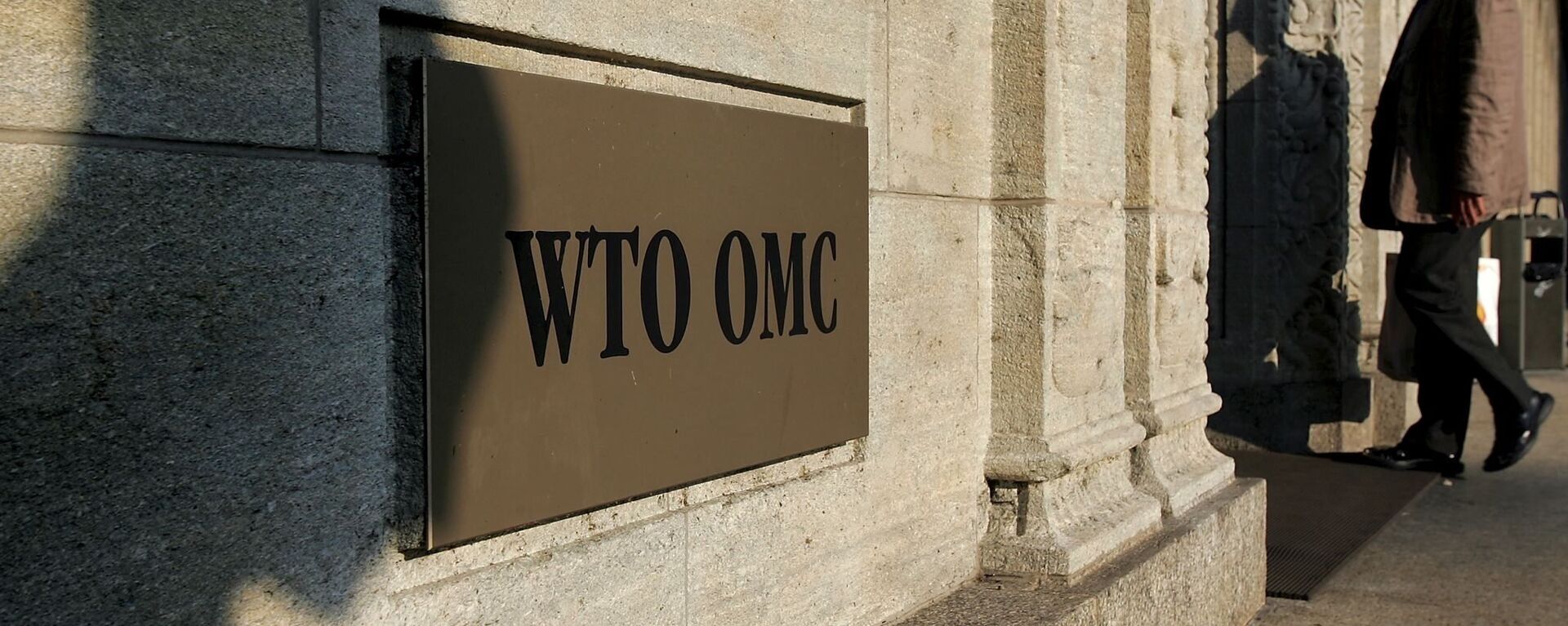EU Accuses Russia of Multi-Billion-Euro Violations of WTO Rules
13:31 GMT 26.12.2021 (Updated: 11:44 GMT 09.02.2023)

© Sputnik / Anton Denisov
/ Subscribe
Moscow began rolling out a comprehensive import substitution programme in 2014, after Western nations slapped sanctions on Russia and restricted the sale of certain high tech goods and industrial equipment to Russian companies over the crisis in Ukraine.
The World Trade Organization has agreed to review a European Union dispute complaint against Russia accusing Moscow of “illegally discriminating” against hundreds of billions of euros in European goods. The global trade watchdog has established a dispute panel to discuss the claims.
Brussels wants the panel to investigate and rule on the Russian state’s import substitution programmes and efforts to replace imported goods and services with Russian analogues, claiming such measures are a violation of commitments Russia made when it joined the WTO in 2012.
The EU accuses Russia of using methods which “seriously disadvantage EU companies when selling goods and services to Russian state-related enterprises and other entities through commercial procurement,” and estimates that in 2019 alone, the value of tenders by Russian state-controlled enterprises amounted to 23.5 trillion rubles, equivalent to about €290 billion, or 20 percent of Russia’s GDP.
The EU claims Russian companies submit bids 15-30 percent below their actual cost, and complains about the need to obtain special permits to purchase engineering equipment abroad, while such paperwork is said not to be required when buying their Russian-made substitutes. Brussels also disagrees with a directive under which 90% of goods purchased by the state, including vehicles, equipment, medical devices and textiles must be Russian-made.
The United States, China, Australia, South Korea, Colombia, Brazil, Switzerland, Canada, Japan, Ukraine and India have reserved the right to take part in the proceedings, with a panel of three experts expected to evaluate the case and come to a preliminary decision on the matter, according to the WTO website.
The EU’s first request for the creation of a panel on Russia’s policies was blocked by Moscow in November, with Russian officials dismissing Brussels’ allegations and saying that the country is in full compliance with WTO rules.
Bloomberg says an initial ruling could take up to three years, after which Russia will be able to effectively veto it by appealing to the trade watchdog’s Appellate Body, which is currently crippled by the China-US trade war.
Commenting on the news, Sergei Tsekov, a member of the Russian senate’s foreign affairs committee, told Sputnik that Brussels “has neither the moral or legal right to demand compensation from Russia.”
“If they refused to supply us with products under the policy of sanctions, we have the right to manufacture them ourselves,” the lawmaker suggested. Tsekov added that the West should “pay Russia roughly $1 trillion for the losses that we have suffered due to the sanctions.”
Russia's ministry of economic development clarified later Sunday that Brussels is demanding changes to Russia's policy allegedly violating WTO rules, not seeking 290 billion euros or some other amount, as initially reported. The ministry stressed that WTO rules do not provide for the payment of any compensation to parties.
The US and its allies have repeatedly criticized Russia for the import substitution policies implemented by Moscow in response to the West’s sanctions war.
On Tuesday, the Office of the US Trade Representative alleged that Russia’s import substitution strategy, and preferences to domestic goods and services, are a departure from WTO norms. Russian Foreign Ministry spokeswoman Maria Zakharova dismissed the claims, saying that while Moscow was “used to unfounded accusations from the US against us, [this has] exceeded all our expectations.” It was strange to hear from Washington that import substitution violates rules while the US imposes unilateral sanctions, Zakharova added.
Russia joined the WTO in 2012 to great fanfare and praise from the US and European countries, despite fears in some corners that membership would gut the Eurasian nation’s manufacturing sector. In 2014 and 2017, groups of Communist Party lawmakers submitted bills to pull Russia out of the trade body, dubbing it a “terrorist organization” and suggesting that it has cost the Russian economy 12 trillion rubles (about $163 billion) and damaged industry, agriculture, wages, and labour productivity. Proponents of joining assured that doing so would allow Russia to import technology and enjoy additional foreign direct investment, but these hopes have dwindled amid Western export restrictions and declining foreign investment by the US and Europe.



